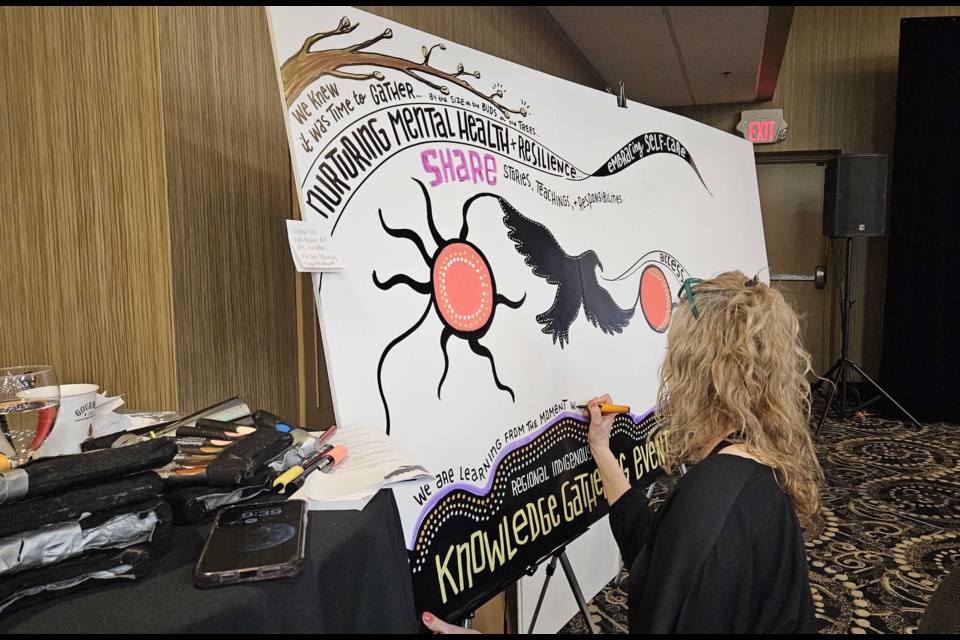THUNDER BAY — Multiple social services and health-care organizations participated in a two-day conference on Indigenous health.
Paul Francis Jr., the vice-president of N’doo’owe Binesi at St. Joseph's Care Group, said he's been working hard to create a safe environment for all Indigenous people at St. Joseph's during this year's Regional Indigenous Knowledge Gathering Event: Walking Together with Humility.
"We really wanted to kind of internally do lots of training with our staff and get to a good place where we engage with the community. Here we can come together with elders, knowledge keepers who really help us plan for the next four to five years."
"In this conference, we'll be talking a lot about colonization, racism, discrimination," Francis Jr. said.
"These are really big terms. I don't think people fully understand and people fully aren't aware. We're trying to do it in a way that we're addressing it head-on.
"We have to be able to talk about the challenges, you know, people have to feel safe, and we have to have a zero-tolerance when people do have bad experiences that are really impactful to people."
As keynote speakers at the conference, Dr. James Makokis and partner Anthony Johnson addressed the group. The pair is known for their historic win on Amazing Race Canada season 7, making them the first two-spirit, Indigenous, married couple to win.
Dr. Makokis spoke about the double-edged sword of self-identifying as Indigenous in the health-care system.
"We know that 100 per cent of Indigenous people going into a health facility, like a hospital, will experience racism or have experienced racism. And if there's no marker for us to look at, then we're completely blindly going through trying to address racism when we don't even have an indicator to start with."
Makokis spoke about how medical regulatory bodies are involved in making changes to front-line patient care.
"Working with regulatory agencies like the colleges of physicians and surgeons is a restorative-based process where an Indigenous person who experienced harm or their family have experienced harm, use our own laws about crossing a boundary. That's racism (and) to restore that balance to that person is by restorative processes."
By bringing in the harmed patient and the perpetrator of the harm, Makokis said it's a way for the patient to release that hurt and hold others accountable for their actions.
His partner, Anthony Johnson, added that Indigenous care methods should be more openly available to patients.
"Rather than having to ask, 'Is there something here for me?' I can see that there is, and then I'm asking because I would like to receive those benefits."
Johnson said there needs to be more consistent funding for Indigenous-led health care at publicly funded institutions.
"I hope that the leaders are able to understand what it is people need to bring Indigeneity into the mainstream health system and then actually put their money where their mouth is, literally."
"There is a huge lack of education around the treaty promise to Indigenous health within any health profession," said Dr. Makokis.
"In my own training as a physician, we had an hour and a half in my entire four years of medical school and that was taught by a non-Indigenous person."
"We need our own people teaching about Indigenous health that are tenured, but we all also need to rebuild our own health system."
Over the course of the two-day conference, participants took in lectures that discussed "moving forward in a good way when faced with racism and discrimination," "investing in First Nation children, pre-youth and youth," and "improving access to care for Indigenous people through a health equity approach."
